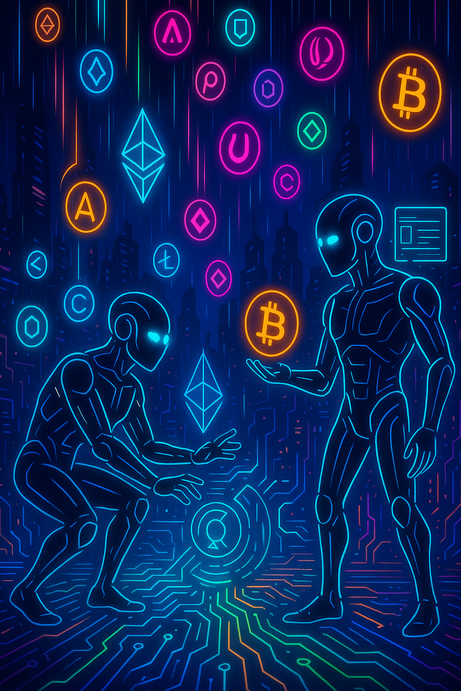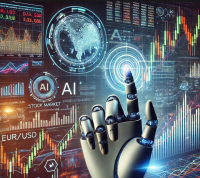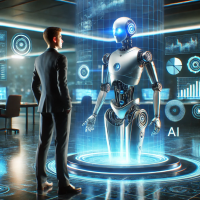What Are AI-Driven Crypto Agents?
AI-driven crypto agents are autonomous software entities powered by artificial intelligence that operate within blockchain networks. These agents perform complex tasks such as yield farming, portfolio optimization, algorithmic trading, governance voting, and even decentralized autonomous organization (DAO) participation - all without human intervention.
By leveraging machine learning and large language models (LLMs), these agents can analyze vast amounts of data, make predictive decisions, and execute smart contract functions in real-time. Their efficiency and adaptability offer a significant edge in the fast-paced, data-rich crypto markets.
Surging Interest and Market Growth
Investor and developer interest in AI-integrated crypto solutions has surged. According to recent Cointelegraph data, AI-related tokens have reached a combined market capitalization of over $5.2 billion, reflecting growing confidence in this hybrid sector. Some of the top-performing AI-powered crypto projects include Fetch.ai (FET), Render (RNDR), Ocean Protocol (OCEAN), and SingularityNET (AGIX).
These platforms use AI to power decentralized computing, data marketplaces, and robotic process automation - enabling smarter decentralized systems and marketplaces.
Popular AI Tools Powering Crypto Agents
The rise of AI in the blockchain world is closely tied to the development and deployment of advanced AI tools. The following are among the most widely used:
- OpenAI’s GPT-4/5 Models: These large language models are instrumental in building smart agents capable of processing human language, executing trading strategies, and interacting with smart contracts.
- Google DeepMind’s AlphaCode: Widely used in optimizing DeFi protocol logic and contract execution, AlphaCode enhances decision-making in agent-based systems.
- Hugging Face Transformers: Used for NLP-related tasks in crypto customer service, DAO management, and sentiment analysis of market data.
- AutoGPT & BabyAGI: These autonomous AI agents are integrated into crypto trading bots and yield optimizers, enabling them to complete multi-step tasks with minimal oversight.
- NVIDIA AI Foundations: Crucial for training AI models on GPU infrastructure, especially for projects dealing with tokenized AI model marketplaces.
These tools enable the creation of intelligent decentralized agents that are not only reactive but also proactive - forecasting market trends, mitigating risks, and making strategic decisions.
Use Cases and Real-World Applications
One of the most compelling examples is Fetch.ai, which allows users to deploy AI agents that can negotiate and execute trades autonomously across decentralized exchanges (DEXs). Another is Numerai, a hedge fund that relies on a global network of data scientists who use AI models to predict stock market performance—rewarded in crypto tokens.
In DeFi, AI agents optimize lending rates, automate rebalancing strategies, and detect arbitrage opportunities faster than any human trader could. For NFT marketplaces, AI tools enhance fraud detection, price prediction, and user personalization.
Risks and Challenges
Despite the promise, AI-driven agents pose significant challenges. Model bias, data privacy concerns, and smart contract vulnerabilities can lead to unanticipated outcomes or exploitation. Moreover, as these systems become more autonomous, the regulatory landscape will need to evolve to address questions of accountability and control.
Centralized AI infrastructures also risk becoming single points of failure or censorship, potentially clashing with the decentralized ethos of blockchain.
The Road Ahead
The fusion of AI and blockchain is still in its early stages, but the implications are vast. As these technologies mature, we can expect crypto agents to evolve into digital co-pilots - navigating markets, optimizing user experiences, and even participating in governance.
For investors and builders, this convergence offers a strategic advantage and opens up new revenue streams. For users, it promises seamless, intelligent, and automated interactions in the decentralized economy.
In the coming years, AI-driven crypto agents won’t just be tools - they’ll be collaborators, accelerating the shift toward a smarter, more autonomous financial future.








